Akosha.com
Are you recently married, moved out fo your parents' home and looking for a property on rent?
Are you planning to live-in with your partner and both of you together are searching for a new home to lease/rent?
Are you planning to move to a different city because of your job and want to lease a home?
Are you in one of these situations and don't know how to go about leasing a home, the dos and don'ts while signing the lease agreement, the precautions you must take during the lease period, etc?
Here's your one-stop guide to everything you want to know about renting a property. Do let us know on the message board below if you found this information useful?
What is a lease?
A lease is an arrangement where one party rents property to another (this property could be anything -- flat, house, land, a car, a computer) for a limited period of time, in exchange for which the other party pays him a certain amount.
Is there a difference between a lease agreement and a rental agreement?
Not really. If you are entering renting any kind of property (including house, flats, offices, cars, computers), it is a "lease" governed by Transfer of Property Act and the terms agreed between the parties. In common parlance, lease agreements governing immovable property like house/flat/showrooms etc. are called rent agreements. Such lease/rent agreements may also be governed by a State Rent Control Act, if it applies to the property.
Note: The name of the document is not material: it is the intention of the parties to create a lease agreement which is important.
Courtesy: 
What documents do I need to enter into a lease arrangement?
None. The only document required to enter into a lease arrangement is the lease agreement itself. There are certain requirements for the registration of the agreement which have been dealt with in the question on 'documents for registration ahead in this slideshow'.
What are the typical clauses in a lease agreement?
The typical clauses are as follows:
1. Description of the property to be leased: For example, in the case of a house, the full description of the premises and the location.
2. Time period for the lease: This will specify whether the lease is for a fixed term, for example, one year, or a rolling term, that is, it could be valid until one party gives notice.
3. Rent payable: This is the amount of rent payable, usually in rupees, and the date and method of payment.
4. Conditions on the use of the property: For instance, there could be a prohibition on smoking, or on making any alterations to the structure of the premises.
5. Method of termination: This clause would explain any situations where the agreement may be terminated without notice, for instance, if the tenant carries out illegal activities on the premises. It would also explain what the notice requirements are for either party to terminate the lease.
6. Security deposit: The tenant will usually have to make a deposit of money (this could any amount but is usually one to six months' rent) with the landlord, so that in case he does not pay the rent, or damages the property, the landlord may withhold this amount.
Which clauses of the lease agreement should a tenant look out for?
Generally, it is advisable to read the entire agreement carefully to make sure that you are satisfied with the provisions and there are no unduly harsh clauses that you may find difficult to comply with. However, the following issues should be looked at very carefully:
- The dates of start and end of the tenancy
- The rent payable, and the frequency, that is, monthly or quarterly
- Responsibility to pay any other charges such as service/maintenance charges
- The possibility of subletting the property
- The party responsible for repairs or maintenance charges
- Provision for enough notice before inspections by the landlord
- Conditions for termination
- Close inspection of the condition of the property before and after the tenancy, for instance in the case of a house the condition of the walls, windows, pipes, electricity, water facilities etc.
- Whether pets/smoking/all types of foods are allowed
Are there particular clauses that a landlord should look out for?
Generally, it is advisable to read the entire agreement carefully to make sure that you are happy with the provisions and there are no clauses that you may find difficult to comply with. However, the following issues should be looked at carefully:
- Penalties/interest for late payment of rent, for instance, agreements would usually impose interest on any late payments. For example, the Delhi Rent Control Act stipulates a simple interest of 15 per cent per annum for payment of rent in arrears
- Providing for the tenant to repair any damage due to her/his fault
- Obligation on the tenant to pay household bills (electricity, water, etc)
- Obligation on the tenant to keep the house secure (setting alarm, locking doors, etc.)
- Obligation on the tenant to return the property in same state as at beginning of tenancy by keeping a signed inventory list
What is the typical duration of a lease agreement?
In India since lease/rental agreements in relation to immovable property do not require registration if the duration is of less than 11 months, people generally enter into agreements with duration of 11 months. However, it is advisable to have your lease agreement registered in any event to avoid disputed later. All agreements must be made out on stamped paper in any event.
Should the rent agreement contain lifestyle stipulations?
It is preferable to set out any restrictions such as on smoking, drinking or pets to avoid any disputes arising later but this is not a usual practice. However even if not stated explicitly in the agreement, it is advisable to agree any such restrictions beforehand.
Do we need to document the fixtures in the house?
Yes. Rental/Lease agreements should provide for an inventory including details of electrical appliances and fixtures such as fans, geysers, lighting and any other appliances.
Do I need to get a Lease/Rental Agreement registered?
Yes. It is compulsory for Lease Agreements in relation to immovable property (that is, houses, offices, flats, etc) for durations of more than 11 months to be registered for them to be legally valid (as provided under the Registration Act).
However, if your agreement is a rental agreement governed by the Rent Control Act (see above question on the difference between a Lease agreement and a Rental agreement) you will need to check the provisions of the legislation.
Under certain Rent Control Legislation (this varies from state to state) it may be mandatory in some states to get a rent agreement registered irrespective of its duration. For example, all agreements under The Maharashtra Rent Control Act are required to be registered irrespective of their duration, that is, even if they are of a duration of less than 11 months. Under the Delhi Rent Control Act, registration of the agreement it is not mandatory and the registration requirement is governed by Registration Act.
If the rent control legislation is silent on this issue, the agreement must be registered if it for a duration of more than 11 months.
Who would usually get the agreements registered: The landlord or the tenant?
Usually, it is the tenant's responsibility to get a lease agreement registered and bear the costs in relation to it (a lot of times, the cost is also split up equally between the landlord and the tenant).
However, if your agreement is a rental agreement governed by the Rent Control Act (see above question on the difference between a Lease agreement and a Rental agreement) you will need to check the provisions of the legislation as to whether the responsibility for getting the agreement registered is mentioned. For instance, as per the Maharashtra Rent Control Act it is the landlord who must get the rent agreement registered.
How do I get a lease agreement registered?
The following documents are required for registration of lease:
- The agreement to be registered (in duplicate)
- Two passport size photographs of each party
- Identity proof for each party and witnesses (for example, election card, passport, Identity Card issued by Govt. of India, Semi govt. and Autonomous bodies or identification by a Gazetted officer)
- In case the property is/was under a lease from any Development Authority (for example the Delhi Development Authority, Industries Department, Labour Department etc.), you will also need the authority's permission for registration of the document
- You may require a no objection certificate from an appropriate authority that the land is not under acquisition and/or is free to be transferred. For example, in Delhi, you need to obtain permission from the Tehsildar of the Sub Division of the District to the effect that the property is not under acquisition under section 8 of Delhi Land (Restriction and Transfer) Act, 1972
- Where the transaction exceeds Rs 5,00,000, you may require an Income Tax clearance certificate (in prescribed pro forma 34A, under section 230 of Income Tax Act, from concerned Income Tax Office).
- Where the transaction exceeds Rs 50,00,000, you may require permission from the appropriate authority (in the prescribed pro forma 37 I, under the provisions contained in section 269 of Income Tax Act)
- In case a party is unable to come personally for registration, a power of attorney holder may carry out the registration formality
How long does the registration procedure take?
The registration procedure can take anywhere between one day to a week.
Is there a reason why certain rent/lease agreements have a term of 11 months?
Lease agreements are generally required to be registered only if they are of duration of more than eleven months. Therefore, people prefer to keep the term of the agreements as 11 months or less to avoid registration. However, such agreements must be made out on stamped paper in any event.
It is advisable to have your lease agreement registered in any event to avoid disputes later.
NEXT: Practical precautions before renting the property
What practical precautions are necessary for the tenant before renting out a property?
Before renting a property, it is essential to ensure that:
- A complete record should be maintained as to the condition of the property and any other property within it (for instance, in case of a furnished office, you would record every piece of furniture such as tables and chairs provided under the agreement)
- If there is anything that is already damaged (such as stains on a wall or a carpet), it should be brought to the notice of the other party and recorded in the inventory
- Electricity and water: If you are sharing a house with your landlord or other tenants (for instance, if you are renting out one floor), it is important to clarify whether there is a sub-meter for the electricity so that you are paying only for the electricity consumed by you. The water charges are usually shared but its important to clarify this
- Parking: If you have a car, it is important to clarify how many parking spaces are available
- Check if power back up is available, and if so, who would pay for the fuel for the generator
- Security: If you are sharing a house with your landlord/other tenants, it is important to check who would bear the costs of security guards, etc. if any
What practical precautions are necessary for the landlord before renting out a property?
Before renting a property, it is essential to ensure that:
- The inventory must be signed by the tenant
- Arrangements to pay electricity and water charges must be clarified, particularly if there is a shared meter
- Arrangements to access/share any common spaces such as corridors and gardens are clarified.
- What sort of verification should a landlord carry out before renting her/his premises?
- Before renting your property out to a tenant, you should make sure the following are carried out:
- Verification of personal information of the tenant: This could be done by verifying identity proof, and proof of the current address and employment
- The tenant should not have a criminal background: Police verification of tenant is mandatory in most of the States.
- Checks to check the financial stability: References from the tenant's employer, verifying her/his position and salary are also useful
NEXT: During the lease...
How do I pay the rent?
This is something you would usually arrange between your landlord and yourself. Usually, tenants pay by cheque or bank transfer (RTGS). In some cases, the landlord is given post-dated cheques for the rent amount.
Who usually pays management/maintenance fees?
This will depend on what is stated in your agreement. Usually, Lease/Rental agreements state that the tenant will pay for repairs up to a certain amount (for example Rs 10,000) and the landlord will usually pay for major repairs which exceed this limit.
Can I sublet the premises?
You have to check whether your lease permits you to sublet the premises, and if so, there will be certain conditions to be followed, for instance, the landlord will usually have to be given notice. In any event, it is advisable to get written approval of the landlord before you sublet the premises.
If your agreement is governed by rent control legislation, most State Rental Control Acts provide that a tenant cannot sublet the premises without the written consent of the landlord. In case a tenant does sublet without the consent of the landlord, the land lord has the right to evict the tenant.
Can I make changes to the premises while I am living there?
This will be governed by the terms of your agreement. Generally, it is common for the landlord to expect her/his premises back as it was rented out it, for example, without any structural additions.
If you do need to make any structural changes, you need to discuss this with your landlord as you usually need her/his/ written consent.
NEXT: Termination of the Lease
Can I be asked to leave before the expiry of my lease? If so, what are the possible grounds?
The agreement between the parties will explain the situations where a tenant may be required to give up a property before the expiry of the lease. Commonly, the situations where this is possible are if the tenant:
- Sublets the premises to someone else without the landlord's consent
- Does not pay the rent on time
- Violates any other term mentioned in the lease agreement
Do I have to get the premises repainted when I leave?
Usually not, but this depends upon the terms of the agreement. Usually, the landlord would give you the property painted and you are not allowed to paint it during the lease.
If you repaint the walls a different colour to what they were originally, without such permission under the agreement, the landlord has the discretion to deduct costs of repainting the premises to the original colour.
NEXT: Security deposit...
For a simple property lease can the landlord deposit the security deposit in his own bank account?
Under a simple lease arrangement for a property, can the landlord deposit the security deposit in her/his own bank account? What should I keep in mind when agreeing the provisions regarding security deposit in the agreement?
Unlike in some countries such as the UK where landlords are required to take deposit insurance for security deposited with them for rental property, in India, there are no restrictions on the landlord's handling of the security deposit. However, once the tenant hands the property back, he is required to return this under the terms of the lease. In case the security deposit is a very large sum, a banker's guarantee may be requested from the landlord (not very frequent).
Practically, most of the dealings in relation to security deposit are always between tenant and landlord and sometimes this is not even mentioned in the agreement. Tenants are usually pushed to follow the landlord's demands owing to the short supply of rented premises.
Both parties should ensure that an inventory of the property (including all moveable items with full descriptions) is agreed to avoid disputes at the end of tenancy. Usually, the landlord is not support to make any deductions from the security deposit for normal wear and tear.
Under Agreements that are governed by Rent Control legislation, are there any legal provisions regarding the security deposit?
Rent Control Acts generally prohibit acceptance of any premium. However, certain states allow the acceptance of a limited amount, for example, the Delhi Rent Control Act allows a landlord to accept not more than one month rent as premium deposit and that too with the permission of Rent Controller.
How do I ensure that my security deposit is returned to me at the end of my tenancy?
The tenant should take a receipt for the security deposit from the landlord. If deposited amount is large (say one year's rent), a banker's guarantee may be requested from the landlord (not very frequent).
In case there is damage to the property at the expiry of the lease, who decides how much of the security deposit may be claimed by the landlord?
Generally, the landlord may withhold the whole or part of the security deposit if there is any major damage to the property. Usual wear and tear is not included. Practically, landlords will only do this if there is some damage due to the fault of the tenant. However, this is something that is negotiated between the landlord and the tenant: which basically means that cordial relationship with the landlord is very important.



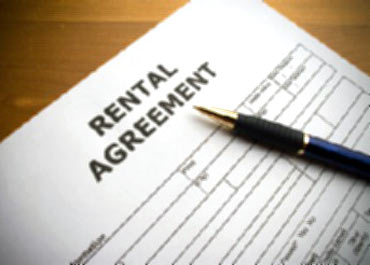

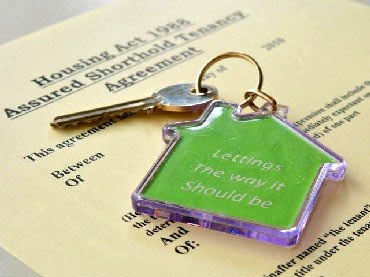

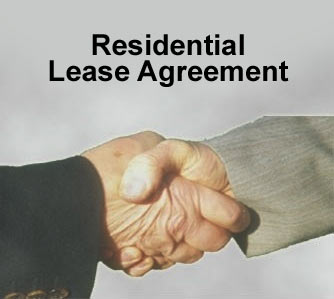
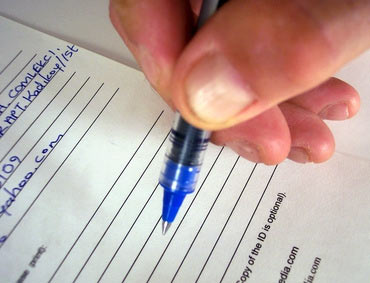

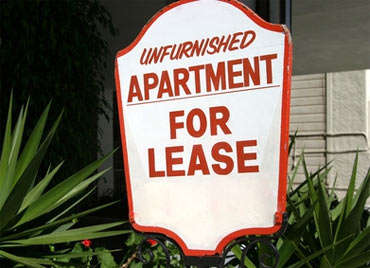
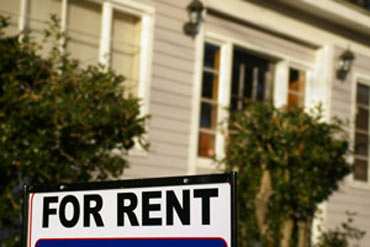

Comment
article